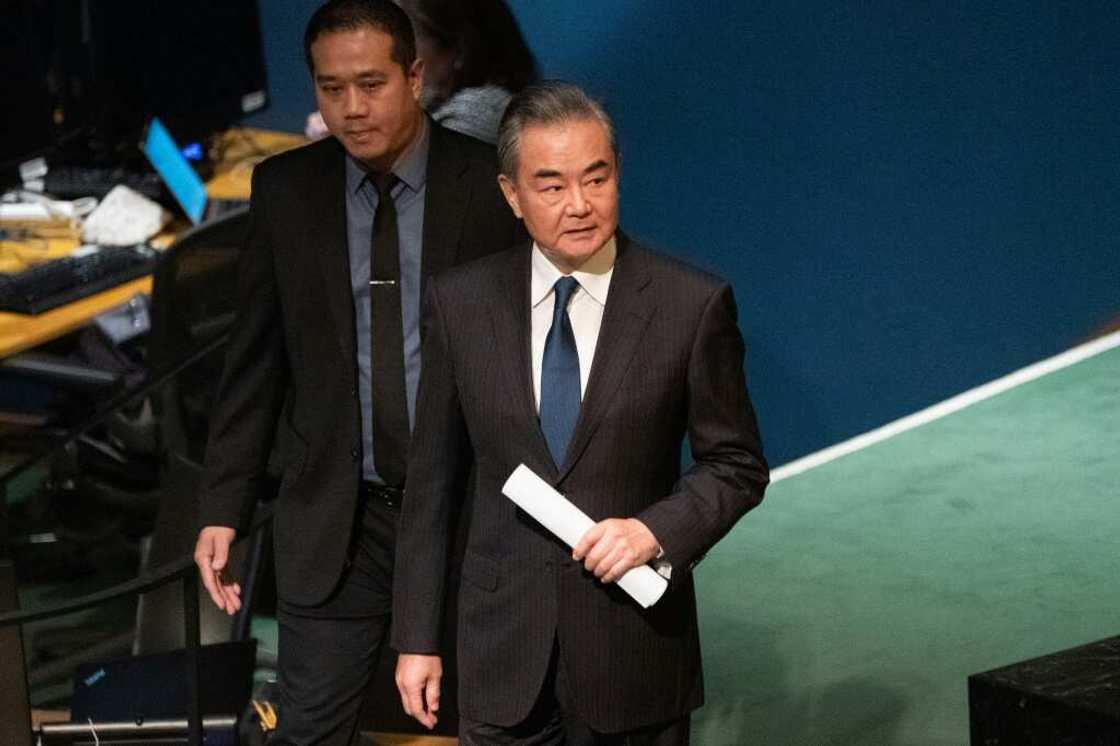China FM calls on Russia, Ukraine not to let war 'spill over'

Source: AFP
China on Saturday at the United Nations urged Russia and Ukraine not to let effects of their war "spill over" and called for a diplomatic resolution.
Addressing the UN General Assembly, Chinese Foreign Minister Wang Yi stopped short of robustly supporting the invasion of Ukraine by Russia, nominally an ally of Beijing.
"We call on all parties concerned to keep the crisis from spilling over and to protect the legitimate rights and interests of developing countries," Wang said.
He called for "fair and pragmatic" peace talks to resolve all global issues.
"China supports all efforts conducive to the peaceful resolution of the Ukraine crisis. The pressing priority is to facilitate talks for peace," Wang said.
"The fundamental solution is to address the legitimate security concerns of all parties and build a balanced, effective and sustainable security architecture."
PAY ATTENTION: Share your outstanding story with our editors! Please reach us through info@corp.legit.ng!
During his visit to the United Nations, Wang met with Ukrainian Foreign Minister Dmytro Kuleba, in their first talks since Russia invaded its neighbor on February 24.
Earlier this month, Russian President Vladimir Putin acknowledged Chinese "concerns" about Ukraine during a meeting with his counterpart Xi Jinping.
Before the war, Putin had visited Beijing and the two nations declared a tight alliance.
But US officials have been heartened by what they see as China's lack of concrete backing for the war and say that Beijing has declined requests to send military equipment, forcing Russia to rely on North Korea and Iran as its own supplies dwindle.
Source: AFP


